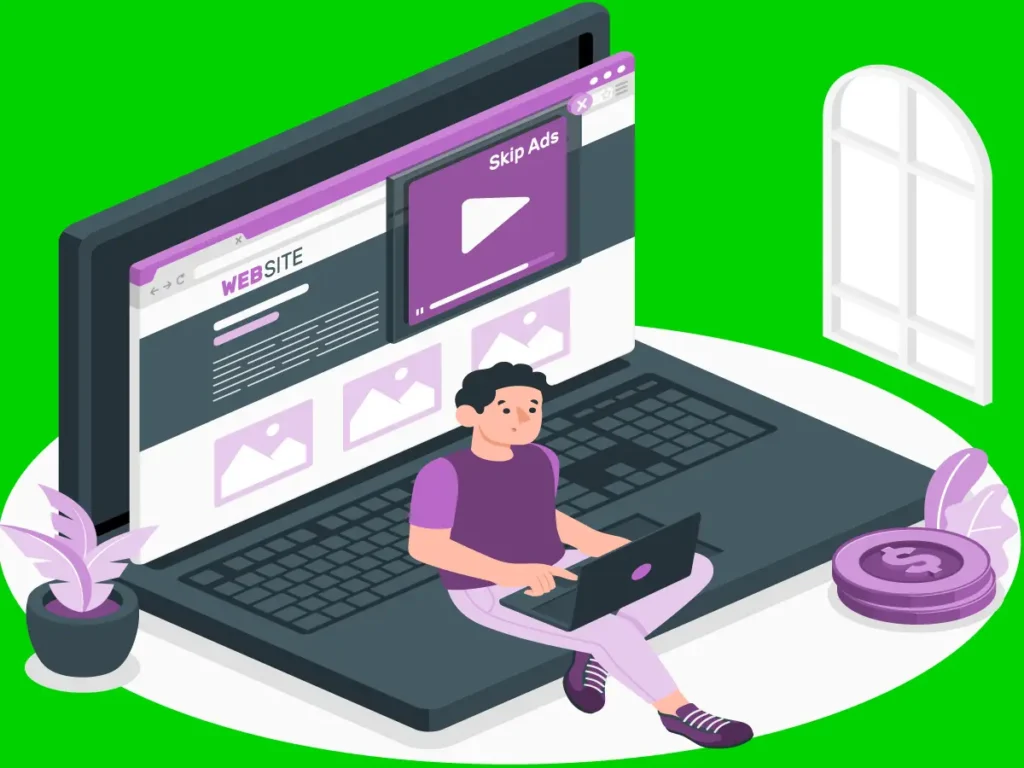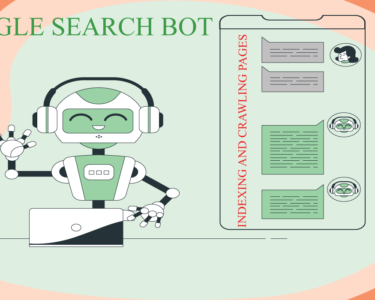Introduction:
Monetize a Blog with Google AdSense. Imagine this: You’ve poured your heart and soul into your blog, creating engaging content that resonates with your audience. But as much as you love what you do, wouldn’t it be nice to get rewards for your hard work? That’s where AdSense comes in. AdSense is a program that allows website owners to display ads on their sites. And in the process, earn money when visitors click on or view these ads.
Picture this scene: You wake up one morning, check your email, and there is a notification from Google AdSense. It tells you that you’ve earned money while sleeping. It sounds like a dream, right? Well, it’s not just a fantasy. With AdSense, bloggers like you can turn their passion into profit by monetizing their blog websites with ads. To get a free WordPress blog set up and a monetized Google AdSense training course, please visit the Hostlingo domain and hosting company.
But why is AdSense such a popular choice among bloggers? For starters, it’s easy to set up and requires minimal maintenance once it’s up and running. Plus, with Google’s advanced targeting algorithms, AdSense can deliver highly relevant ads to your audience. This can increase the likelihood of clicks and conversions. In addition to AdSense, there are several other streams of income that bloggers can explore to maximize their earnings. Affiliate marketing, sponsored content, and selling digital products are examples of alternative revenue streams that bloggers can leverage.

Here are some steps to take before monetizing your blog with Google AdSense:
1. Sign up for AdSense.
Visit the Google AdSense website and sign up for an account. You’ll need to provide information about your website and agree to the terms of service.
2. Get approved:
After signing up, your website will be reviewed by Google to ensure it complies with its policies. This process typically takes a few days to complete.
3. Place the AdSense code on your blog:
Once approved, you’ll receive an ad code from AdSense. You’ll need to place this code on your blog where you want the ads to appear. AdSense offers various ad formats and sizes to choose from.
4. Optimize ad placement.
Experiment with different ad placements to find what works best for your blog and audience. Consider placing ads in prominent locations where they are likely to be seen. However, be careful not to disrupt the user experience.
5. Create quality content.
To attract visitors and encourage them to engage with your ads, focus on creating high-quality and relevant content. Ensure it resonates with your target audience.
6. Drive traffic to your blog.
Increasing traffic to your blog can lead to more ad impressions and clicks, ultimately boosting your AdSense earnings. Consider using SEO techniques, social media promotion, and other marketing strategies to attract visitors.
7. Monitor performance.
Keep an eye on your AdSense dashboard to track your earnings, ad performance, and other metrics. This will help you identify trends, optimize your ad strategy, and maximize your revenue potential.
8. Follow AdSense policies.
Make sure to comply with Google AdSense policies to avoid violations that could result in penalties or account suspension. This includes adhering to guidelines regarding ad placement, content quality and prohibited content.
By following the above steps and continually optimizing your ad strategy, you can effectively monetize your blog with AdSense. And generate a steady stream of income from your content.
For many writers, starting a blog is a passion project. The opportunity to share interests, knowledge, and ideas with people from all over the world is a beautiful way to build connections across communities. But, as many of us have learned, passion alone does not pay the rent. The good news is that it’s possible to make money off a blog, whether you want to earn some extra spending money or turn blogging into a full-time career.
Essentially, there are three ways to monetize a blog: sell a product or service, create gated content, or promote external brands. This article discusses specific strategies, to help you decide which are best for your blog, and offers tips for maximizing your monetization efforts.
Ready to create a blog and monetize it? Get started with the Hostlingo free WordPress blog set up today.
How beginners can monetize a blog
Monetizing a blog can be a time-consuming and challenging process, and it is not something that can be achieved overnight. However, there are a few ways that you can make money off your blog. Even if you’re blogging as a beginner.
01. Make money from online ads
To make money from blogging, consider displaying advertisements, such as web banners and banner ads, on your site and collecting revenue from each click. This method requires minimal effort from the blogger, as they only need to set up an account with an online ad platform and connect it to their website. Google AdSense allows you to define which fields, industries, and categories of ads should be displayed on your blog and design the ads to match the overall design of your blog. When creating a blog on Hostlingo, you can add Google AdSense ads to your blog and generate income whenever they are viewed or clicked. To ensure the ads are profitable, they should relate to your audience’s interests, such as health and wellness-related content. Instead of real estate blog ads, opt for those promoting wellness solutions or health products.
You might also want to consider using pay-per-click (PPC) ads to generate traffic to your website in the first place. The more website visitors you have, the more you can increase the number of conversions on your display ads.
02. Monetize a Blog with Google AdSense: Ask for donations
You can also monetize your blog by asking for donations. While you shouldn’t be pushy, you can leave a friendly, transparent note to fans expressing your appreciation for their readership and welcoming their support. Your audience will be especially inclined to support you if you’re blogging about a good cause, whether your goal is to promote social justice or support nonprofit work.
You might feel more comfortable asking for donations if you are better able to convey the learning aspect of your content. Being able to provide tangible value to readers from your content may make them more likely to donate, and you may feel more comfortable with the process.
The principle behind donations is that they enable your audience to thank you for providing them with free, valuable content. For this reason, it’s not advisable to ask for donations if you have already been charged for access to them.
03. Monetize a Blog with Google AdSense: Become a freelance blogger
Another effective blog monetization strategy is to become a freelance writer for widely read online publications within your niche. Even if your blog isn’t drawing in much traffic yet, your posts serve as a valuable portfolio of your writing that you can leverage to become a freelancer for other blogs. By using your content to establish authority and expertise, you can get hired to write for different blogs and might even be able to make it a full-time job.
To find these opportunities, you can research dedicated freelance writing job boards and online marketplaces for freelance work or reach out to brands directly. Whichever route you take, be sure to provide a link to your blog to highlight your writing skills and experience.
04. Monetize a Blog with Google AdSense: Sell eBooks
As you build your readership, offer your fans an in-depth, comprehensive angle on your content in the form of an eBook. Your eBook can be an elaboration on topics covered on your blog, or it can introduce a new theme or question that’s highly relevant to your target audience. For instance, if you’re a photography blogger, your eBook could explore the most fascinating locations you have ever worked in and what they taught you about photography.
When you create an eBook, draw lessons and stories from your knowledge and experience. Use your book to teach readers something new and show them how they can put this knowledge into action in their lives.
Consider using Patreon to create and market your book to your potential readers. Once completed, eBooks can be a good source of passive income, as you make them once and hopefully sell them forever.
05. Monetize a Blog with Google AdSense: Do some affiliate marketing
Affiliate marketing is a popular method for monetizing a blog by partnering with a brand to promote their products and earning a commission for every sale. This is a win-win situation for both bloggers and brands. However, it works best when both parties share the same target audience. To drive leads and sales, find a company your readers are interested in and connect the product’s value with your blog’s organic content. Amazon Associates is a popular choice for beginners, as they include links to Amazon products in blog content and receive a commission for every purchase made through their site. This performance-based revenue is best for bloggers who share the same target audience.
06. Monetize a Blog with Google AdSense: Write sponsored posts
Another option is to create sponsored content that highlights a specific product or service. This is often an effective form of advertising for brands, and it’s also a powerful way to monetize a blog.
Your first step is to find a brand to partner with. While businesses will sometimes reach out to bloggers directly as part of their content marketing efforts, you should also take the initiative to email brands yourself and inquire about partnership opportunities.
Sponsored posts usually include a product review or demonstrate how the writer uses the product for professional or creative purposes. It’s a great way to earn reliable income through your blog since, unlike with ads and affiliate programs, you know exactly how much you’ll be making.
If you choose to write sponsored posts, keep in mind the following tips:
- To generate recurring revenue as a food blogger, consider partnering with brands to create sponsored posts over several weeks or months. By promoting products you love and use, you can earn money as a food blogger, ensuring a steady source of income.
- When you reach out to brands, show them how sponsoring your posts would benefit their business. Tell them about your website traffic, show them how the interests of your fans align with their brand, and offer ideas for how you’d include their products in your content.
- Don’t try to hide sponsored posts. Be honest with your audience and clarify it with a short disclaimer.
- Don’t compromise your integrity as a blogger. Only recommend products that you believe in and that you think would offer genuine value to your readers.
07. Monetize a Blog with Google AdSense: Get sponsored by a brand
In addition to creating sponsored posts, another benefit of establishing paid partnerships is to get your blog, or even your entire online presence, funded by a brand. With this approach, you don’t necessarily need to devote whole posts to product reviews or recommendations. Instead, you might choose to feature the sponsoring brand in your blog’s website header, with a note in your articles and social media content thanking them for their support.
This type of sponsorship can be beneficial if you find a brand that you genuinely appreciate and that is highly relevant to your niche. When you negotiate your agreement, make sure that both sides are clear about expectations so you don’t end up compromising your work.
When to monetize a blog
Now that you know how to monetize a blog, you need to consider when it actually makes sense for you to do so. There is no one-size-fits-all answer to the question of when to monetize your blog. However, there are a few factors you should consider before making a decision.
- Your audience: How big and engaged is your audience? When you’re considering monetizing your blog, pay attention to the people who would be making that happen. It’s essential to have a lot of people who are interested in your content and likely to be willing to pay for it. If you don’t have a large or engaged audience, it may not be worth monetizing your blog yet.
- Your content: What kind of content do you create? If you produce high-quality content that people are willing to pay for, then you may be able to monetize your blog sooner. Make sure that your content is well-written, informative, and engaging.
- Your goals: What are your goals for your blog? If you’re starting, you may want to focus on building your audience and creating great content before you start monetizing. However, if your main goal is to make money from your blog, you may want to begin monetizing sooner. Having a clear monetization strategy will help you achieve this more quickly.
Conclusion:
In conclusion, monetizing your blog with AdSense is not only a practical way to earn money from your passion but also a strategic move to diversify your income streams and secure your financial future. By leveraging the power of AdSense and exploring other revenue-generating opportunities, you can turn your blog into a profitable venture that pays dividends for years to come. So why wait? Start monetizing your blog with AdSense today and unlock the potential for unlimited earning potential. For aspiring bloggers and those who intend to own a blog, please take advantage of Hostlingo’s 10% discount promo that will be ending soon by signing up with them and getting a free WordPress blog setup and monetized Google AdSense training course.



